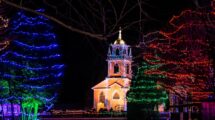Off the Beaten Path
By Madeline Kallio
Glengarry North enchants the history buff and day traveller alike
Well before the Highland Clearances, the founding settlers of Glengarry County came from the Western Highlands in 1773 to the estates of Sir William Johnson of New York and were displaced by the ravages of the Revolutionary War in America to finally settle in peace in 1784 in what is now the easternmost part of Ontario. For their loyalty to the British Empire, they were given generous land allotments and designated with a mark of honour as United Empire Loyalists. Being predominantly Gaelic-speaking Roman Catholics, they were influenced by their priest, Alexander Macdonell of St. Raphaels, known as “The Big Bishop.” The Protestants were ministered to by the Rev. John Bethune of Williamstown. This article focuses on some of the towns and villages that were settled in North Glengarry.
Maxville
A number of the settlers to this community came from Perthshire, Scotland between 1812 and 1822; and, since so many of their names began with Mac, the settlement was first called “Mac’s Corners” and then “Macsville.” Shortly after the post office was opened in 1880, it officially became “Maxville.” As the home of the Glengarry Highland Games (613 527-2876), the largest in North America, and the North American Pipe Band Championships, Maxville has been the gathering place around the August long weekend each year since 1948 for thousands who watch the games, the over 50 pipe bands and 200 dancers who compete. Maxville hosts the Maxville Fair (613 525-0986) the third weekend of June for three days with agricultural exhibits, truck and tractor pulls and more. The Maxville Farmers’ Market (613 527-2449) takes place on Fridays from 2 to 6 p.m. from May until October. Maxville also boasts the Glengarry Sports Hall of Fame (613 527-1044) on the fair grounds, which is open in the summer and commemorates and preserves the achievement of the athletes of the area and exhibits artifacts of Glengarry’s sports heritage.
One of the larger communities in North Glengarry, Maxville has some interesting businesses. Muir’s Bakery (613 527-1806), 6 Main Street, has Scottish specialties such as meat pies, steak/kidney/mushroom pies, empire or princess cookies, and “of course, haggis!” The Kilted Canuck Pub and Eatery (613 527-9900), 1 Mechanic Street, serves a variety of pub food and drinks. Debbie’s Country Corner (613 527- 2800), 18105 Mechanic Street West, has flowers, home decor and gifts. Waikato Pizza (613 527-2955), 4 Main Street, is a pizza restaurant that also offers wraps,
hamburgers, wings and poutine.
St. Elmo
St. Elmo was born in 300 A.D. and was immortalized by Mediterranean sailors for the glow around the ships’ masts, caused by thunderstorm discharges, the phenomenon of which was nicknamed “St. Elmo’s Fire.” Apparently, the daughter of the first postmaster read about the saint in a novel and influenced the naming of the village. The settlement is now a small collection of houses, the Congregational Church, a large, square pioneer log structure erected in 1837 and the 1864 Gordon Free Church on County Road 20. The Reverend Daniel Gordon became pastor of the then Free Presbyterian Church of Indian Lands (the Congregational Church), when he was barred from that church, he built the Gordon Free Church down the road. Around the turn of the century, his son, the Rev. Charles W. Gordon, under the name “Ralph Connor,” penned Glengarry School Days, The Man From Glengarry and 28 other novels which sold worldwide. A remarkable contrast to the Charles Gordon who was a Moderator of the Presbyterian Church of Canada, a high-profile chaplain in the Canadian army, a labour dispute negotiator and a social justice crusader. His novels reflect on life in the Glengarry community, an incredible recollection since he had left the area at the age of 10.
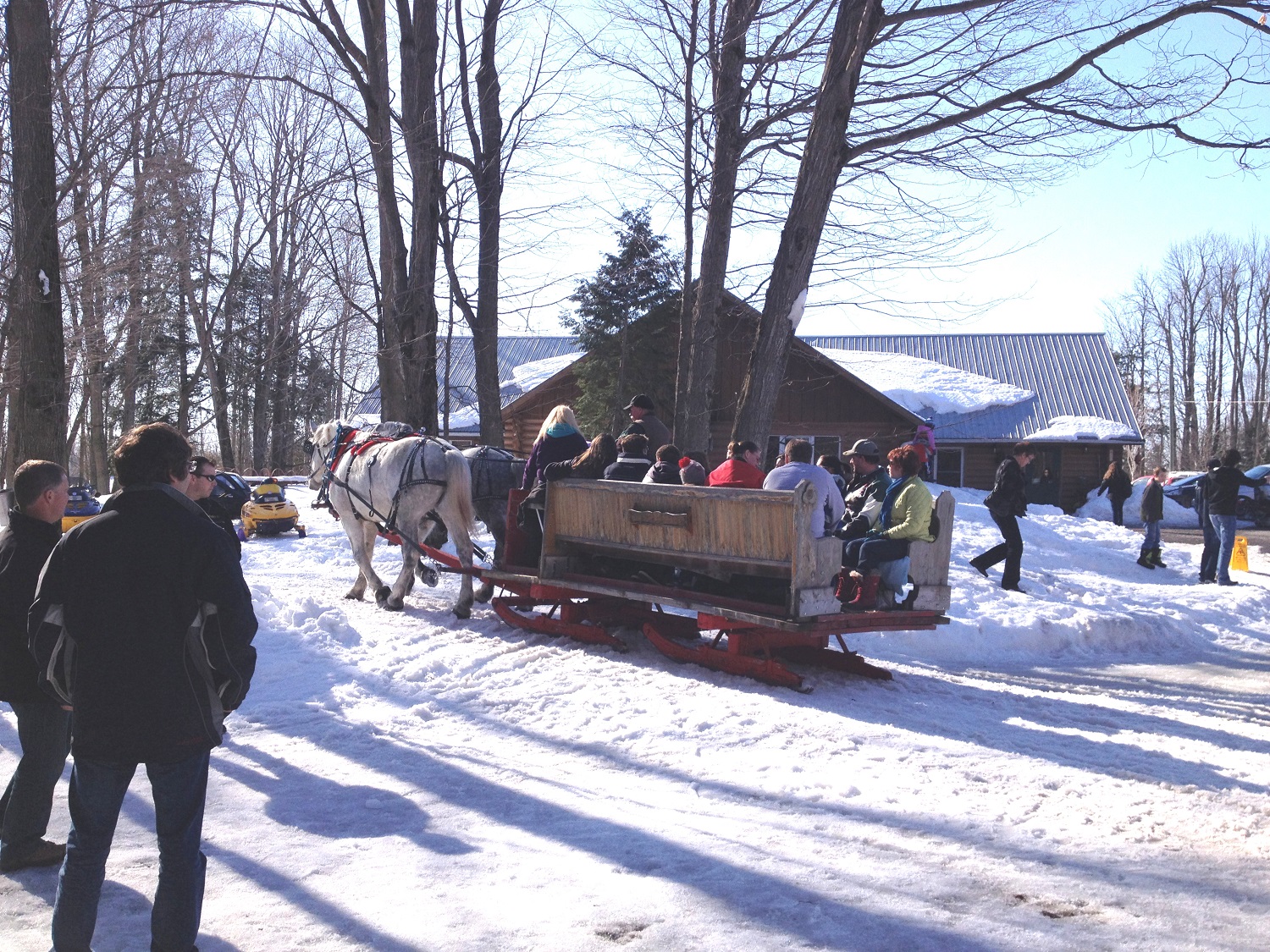
Apple Hill
The Canadian Pacific Railway was built through Sandy Kennedy’s apple orchard; and, when the post office was opened in 1882, he, being an influential Conservative, suggested that the name reflect his lost orchard. Split Rock Farms Alpacas (613 799-9777 or 905 687-1319), 19152 County Road 25, offers tours, walk an alpaca and quality alpaca items, often one of a kind, in the Alpaca Habit Boutique from Thursday to Sunday by appointment only. Items include socks, insoles, hats, scarves, clothing, blankets, plus much, much more.
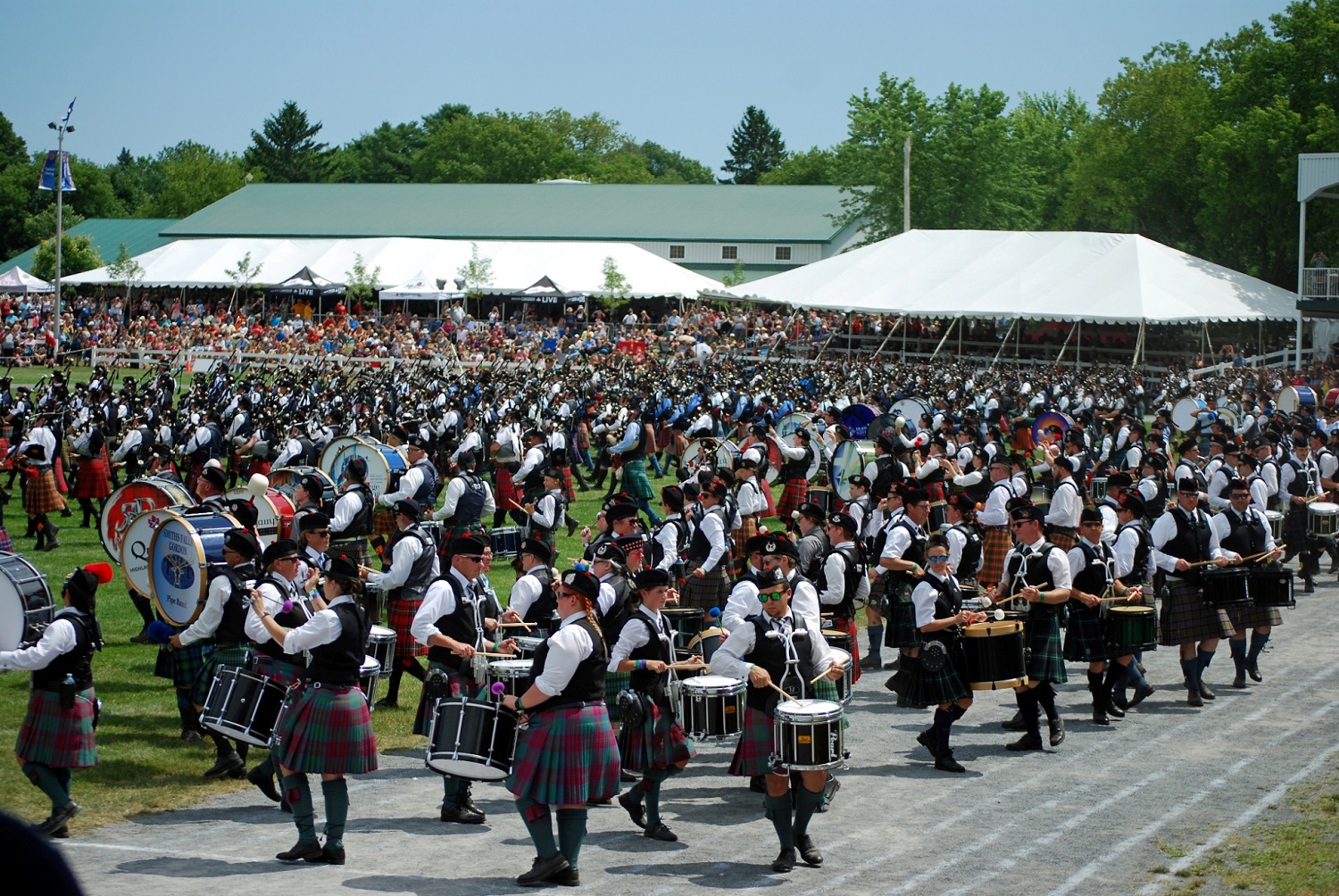
Glen Robertson
The railroad station was built on Alexander Robertson’s property so, in 1874, the community was named for him. Today, the community is still thriving, although its proximity to Alexandria limits the businesses that spring up. The Glen Roadhouse (613 874-2888), 21951 Main Street, has full-course meals, take out and daily specials. For 135 years, Glen Robertson has celebrated Canada Day at the end of June with pony rides, games, food stands, live music and more. Wood Brothers Brewing Company (613 874-2290), 2980 Wylie Road, is a small batch farm brewery located on 65 acres of rolling countryside with a focus on brewing quality and hopforward beers. The taproom does not serve food.
Lochiel
Lochiel was the estate of the Clan Cameron chiefs in Scotland and came from the name of a small lake, Loch Eil. A number of clan members had immigrated to this area and chose to name their settlement after their Scottish ties, though it was commonly referred to as “Glen James” and “Quigley’s Corners.” A number of houses populate this community. The Community Centre hosts massive semi-annual book sales and concerts. Stonehouse Vineyard (613 859-3517), 21065 Lochiel Road, is a five-acre vineyard situated in a park-like setting with five main cold-climate grape
varieties. From May 21 until October 31, it offers a variety of tasting and tour packages by appointment.
Dalkeith
Originally known as Robertson’s Mills, since the Clan Robertson had bought land in the area, in 1867 the settlement was named in honour of the eldest son of the Duke of Buccleuch, Walter Henry, the Earl of Dalkeith, who was accidentally killed in a deer-hunting accident at the age of 25. A community that prides itself on its history and bands together, the Dalkeith History Club, 1841 Dalkeith Road, sponsors a number of activities. The Dalkeith Recreation Association (613 874-1216) also hosts a number of activities, including a winter carnival. The community-run Dalkeith Plus Library (613 874-2337), 1835 County Road 23, has a large collection of Ralph Connor books, some of which are available for sale. The Spiky Thistle Company (613 815-5155), 20950 Lochinvar Road, offers “a unique selection of tartan homeware and attire. Stylish yet homely, each item is handpicked to complement any home and wardrobe.”
Laggan
In 1862, the settlement was called Kenyon. The land for Laggan was purchased in 1826 by Donald Cattanach, a Scottish native. Cattanach named the community in honour of his former home back in Inverness Shire, Scotland. When the post office opened, it became known as Laggan Post Office and, by 1875, Laggan.
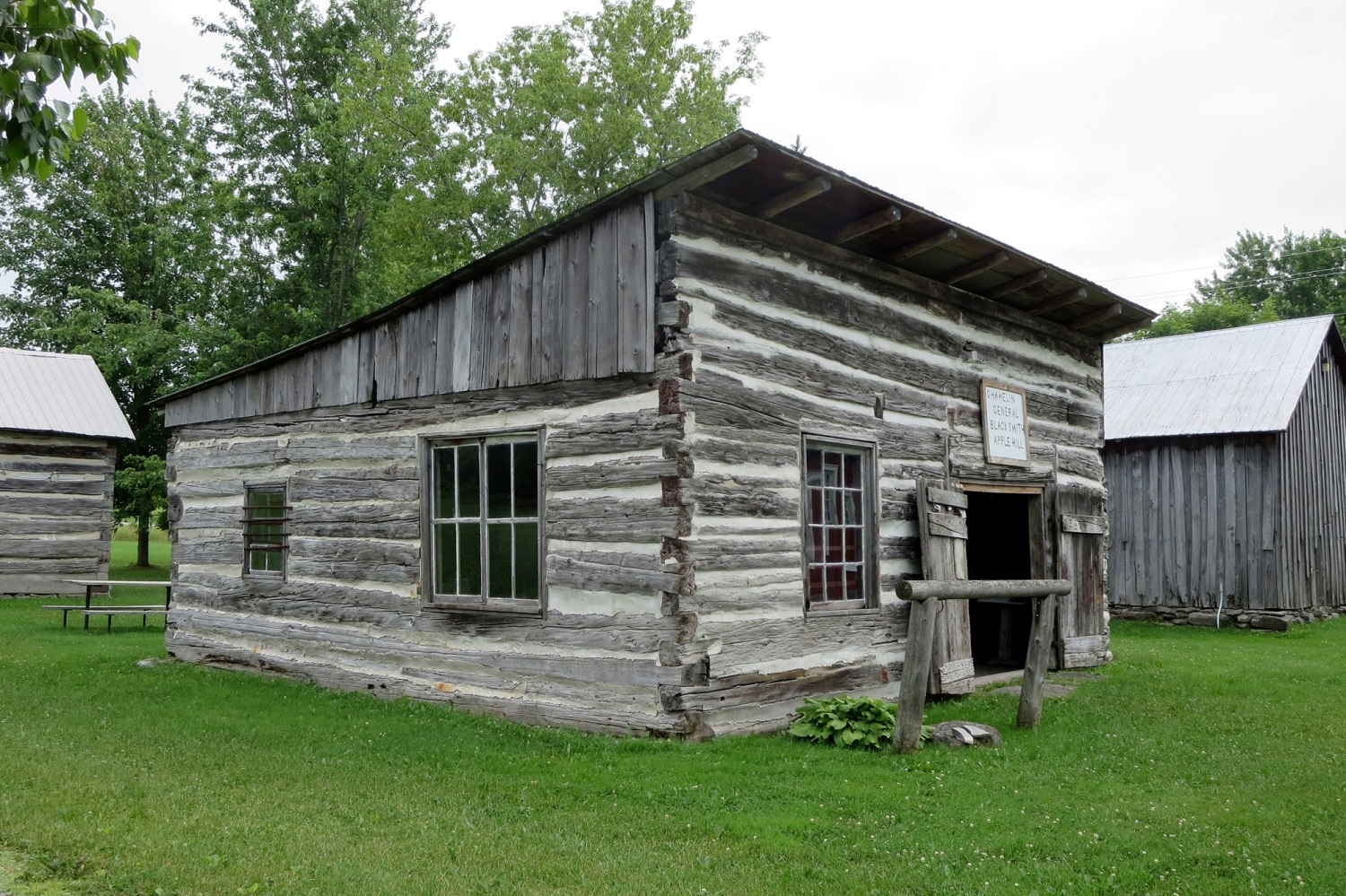
Fassifern
A government official in Ottawa suggested that the hamlet be named Kennedy for an elderly member of the community. After residents objected, in 1905, the settlement was named Fassifern after Lord Fassifern, a Scottish noble from Clan Cameron, who was killed in a battle the day before the Battle of Waterloo. The Fassifern General Store (613 525-2144), 2462 County Rd 34, offers a bit of everything to the community — groceries, hardware, gas and more.
Dunvegan
Inspired by Dunvegan Castle on the Island of Skye in Scotland, the ancestral seat of the Clan Macleod, the name means “little castle.” Dunvegan has a number of residents and is home to the Glengarry Pioneer Museum (613 527-5230), 1645 County Road 30, a collection of 10 buildings of furniture, toys, tools, sleighs and farm implements. It includes the cedar log Star Inn, built in the 1840s, a log barn with a weaving display, a carriage shed, a miniature cheese factory, the last operating blacksmith shop in Glengarry, the one-room Laggan Big Beaver School built in 1910, as well as the former 1869 Roxborough Township Hall which houses books and maps of area history and collections of books by Ralph Connor and works by pioneer Glengarry photographer, Duncan Donovan.
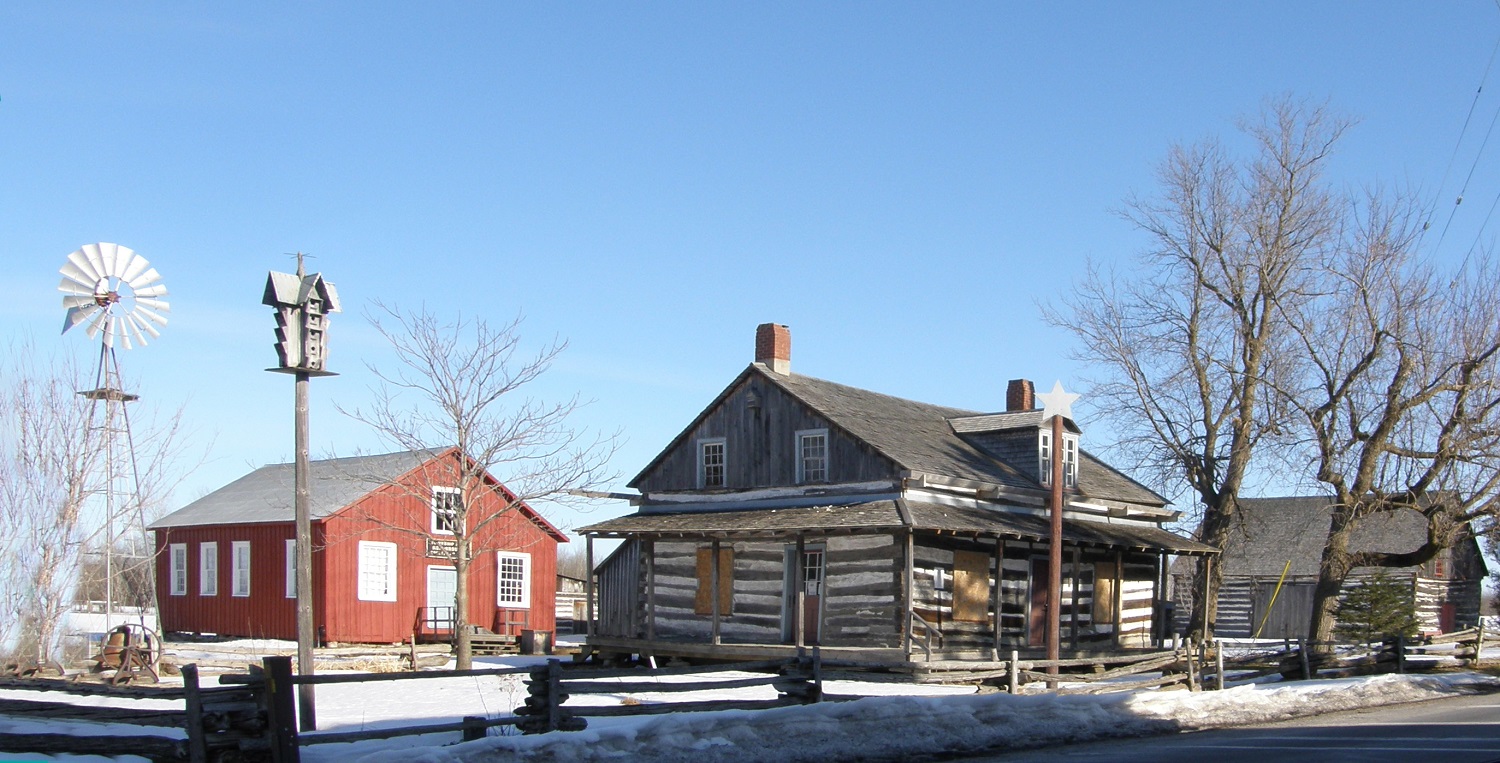
North Glengarry has many villages set in woods, meadows and rolling hills. This article hardly scratches the surface of the sights and sounds of this exceptional region and has left many of the
interesting towns, businesses and other venues for the visitor to discover. Some of the villages no longer exist; but, often, there are markers on the site to ensure they will not be forgotten. Even if
you are not Scottish, you will feel right at home here. This article lists the normal activities that take place in these towns; but because of COVID restrictions, many of these activities have been put
on hold or reduced temporarily. It is wise to call ahead. Driving tours can be downloaded at glengarryroutes.ca.





